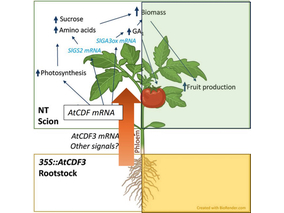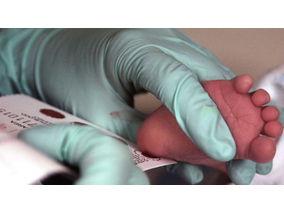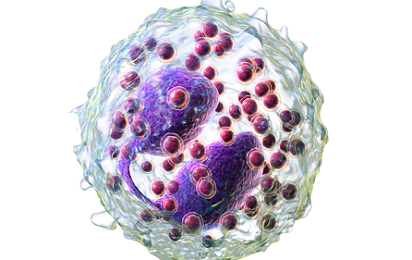To carry out the work, the Italian researchers used artificial intelligence methodologies to study which genes could be related to the prognosis of COVID-19. To do this, they studied blood samples from 638 people (men and women) in Italy and identified a gene with various genetic variants that were associated with the clinical course of the disease: the androgen receptor or testosterone receptor. The variants consisted of having a different number of repeats of a specific amino acid, that is, repeats of one of the pieces of the receptor. Depending on the person, the androgen receptor can have between 9 and 36 repeats of the amino acid glutamine.
“The results showed that having less than 23 repeats of this amino acid (short repeats) is associated with a better prognosis for COVID-19. On the contrary, if the testosterone receptor has 23 repetitions or more (long repetitions), patients are at greater risk of being hospitalized in the ICU”, summarizes Dr. Aurora Pujol, researcher of the Neurometabolic Diseases group at IDIBELL and coordinator of the Spanish cohort. Although the influence of genes in COVID-19 has been one of the research interests since the beginning of the pandemic, this is the first time that the effect of a gene with this type of variant has been verified, that is, with different number of repetitions of an amino acid depending on the person.
As testosterone is the main male sex hormone, the second phase of the study focused mainly on analyzing the severity of COVID-19 in this group. In this case, the results obtained in the Italian population were validated in blood samples from 158 men (117 with severe COVID-19 and 41 with asymptomatic COVID-19 or that did not require hospitalization) from another population severely affected by the pandemic such as the Spanish. It was found, again, that the androgen receptor variants are a factor that influences the worse evolution of some men to COVID-19.
“The effect of these genetic variants is especially important in men because testosterone is the main male sex hormone. Furthermore, its receptor is encoded on the X chromosome, of which men have only one copy. In women, this effect associated with a more serious COVID-19 would be much lower since, in them, testosterone plays a less relevant role and they have two copies of the X chromosome”, explains Dr. Roger Colobran, researcher at the Diagnostic Immunology research group at the VHIR and one of the authors of the study. Having two X chromosomes means women to have two copies of the testosterone receptor, each with its own number of repeats. Therefore, the global activity of the receptor and the effect on the severity of COVID-19 would depend on the number of repetitions that the two copies have, not just one of them as in the case of men.
The data collection of the Spanish cohort was centralized by IDIBELL, with the participation of Vall d'Hebron Hospital and the Diagnostic Immunology group at the VHIR, the Rioja Salud Foundation, the La Paz-UAM University Hospital in Madrid and the CIBER of Rare Diseases (CIBERER). The experimental validations using RT-PCR and Sanger techniques in the Spanish cohort were carried out in the laboratory of Dr. Aurora Pujol, at IDIBELL. "It is essential, in this type of study, to confirm the data of Italian patients with independent cohorts, because population genetic factors may play an important role", adds Dr. Pujol.
The testosterone receptor and regulation of the immune response to SARS-CoV-2
In every person, the androgen or testosterone receptor has a region that can have a different number of repeats of the amino acid glutamine. In the general population, there are from 9 to 36 repeats, and depending on this, receptor activity can change. Receptors with short repeats (between 9 and 22 glutamines in a row) have a higher activity, while in those with long repeats (between 23 and 36 glutamines) this activity is reduced. The current study showed that having a higher number of repeats, and therefore lower receptor activity, is associated with a worse COVID-19 prognosis regardless of age. This fact is consistent with previous studies showing that men with hypogonadism, in which testosterone levels are very low, have a worse prognosis for COVID-19.
“In the cases with long repetitions, the testosterone receptor is less active. This receptor is responsible for attenuating inflammation, therefore, men who have it less active will have a stronger inflammatory response that is related to the most serious symptoms of COVID-19”,justifies Dr. Colobran. Thus, those men who have a more active receptor would be more protected against the disease due to their better ability to regulate the inflammatory response that occurs.
Furthermore, in men with longer repeats (and therefore lower androgen receptor activity), blood testosterone levels were tested and found to be higher than usual. This can be explained because if the receptor is less active, the production of testosterone is not adequately regulated and the testes continue to generate it to compensate for the lack of activity of the receptor.
“The risk posed by these variants in the androgen receptor, as in other genes, is not as high as it would be with being elderly, but it helps us to understand more in depth how the disease works, why there are so many differences between individuals and why the most serious forms develop”, highlights Dr. Pere Soler-Palacín, head of the Infectious Pathology and Immunodeficiencies Unit of Pediatrics of Vall d'Hebron and head of the Infection in Immunocompromised Pediatric Patients research group of the VHIR, who has also participated in the publication.
The researchers leading the study conclude that this finding raises the possibility that the administration of testosterone in men with an active receptor could help improve the prognosis of the disease and decrease their mortality.





